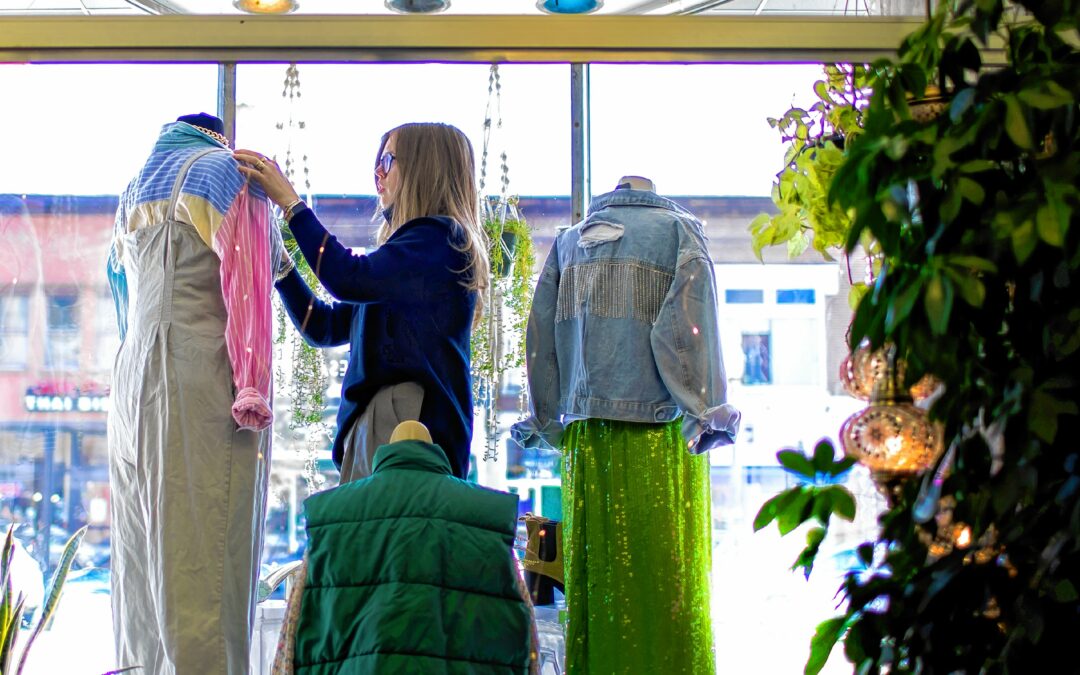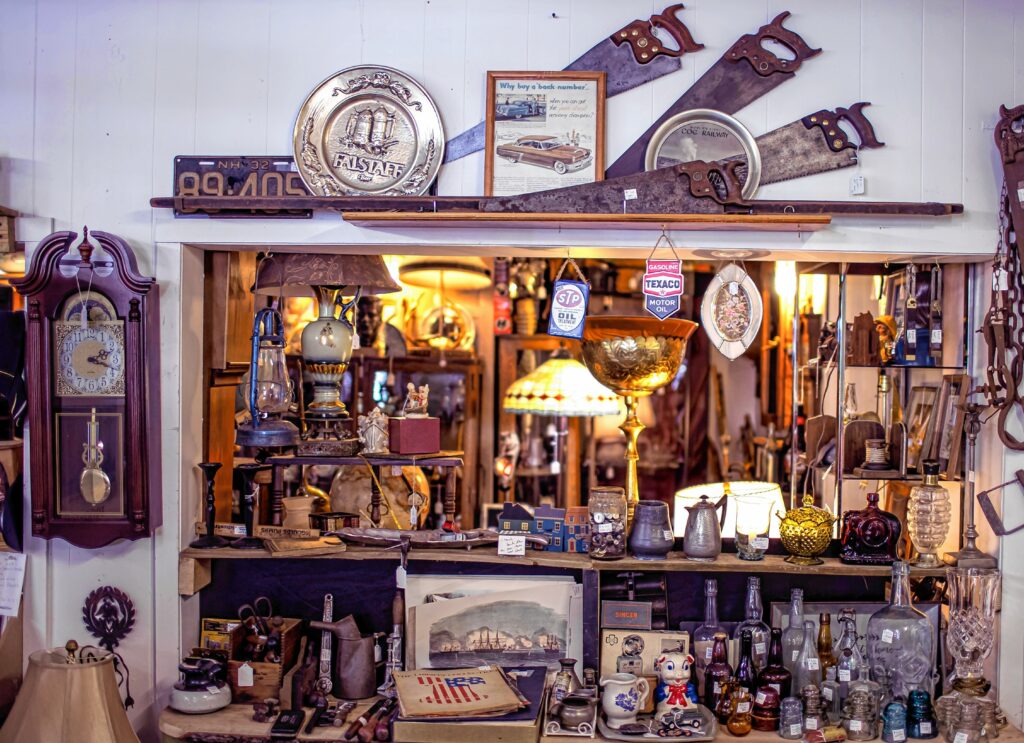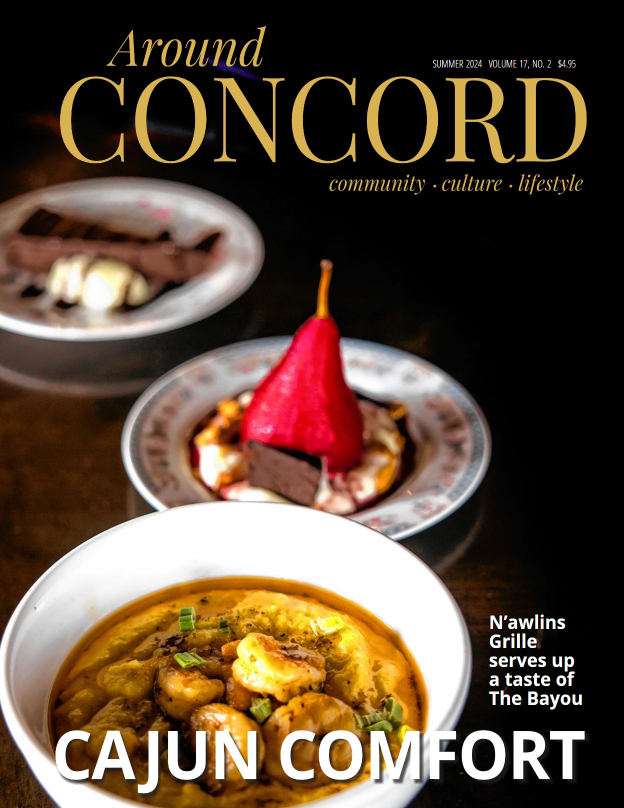Looking to refresh your spring wardrobe or add a splash of color to your home on your next shopping spree, but worried about adding to the waste stream? Shopping at consignment or thrift stores is a fuss-free way to take one step toward making a sustainable choice.
“At a consignment store, you are shopping sustainably without even trying because it’s just built into the business model,” said Elyssa Alferi, the owner of Lilise Designer Resale, a vintage and designer consignment store on Main Street.
Purchasing previously owned items keeps products in circulation for longer while also reviving old fashion trends like oversize jackets and vintage sequined bags from the 1990s.

A used high-end bag at Lilise Designer Resale, a vintage and designer consignment store on North Main Street.
At Lilise, Alferi gives a home to designer labels like Chanel, Gucci, Tory Burch and others that still have a lot of life left in them. Concord residents can shop for high-end fashion items without having to travel all the way down to big cities like Boston or New York City, thanks to the store’s consignment of curated designer labels.
Unlike fast fashion fabrics such as acrylic or plastic leather, most of the clothes in the store are made from sustainable fabrics such as wool and cotton, which compost better but are more expensive to buy off the rack.
According to the Environmental Protection Agency, landfills in the United States were a dumping ground for 11.3 million tons of textile waste in 2018, accounting for more than 65% of all textiles produced that year.
Apart from sustainability, thrift shopping can help you find your authentic style by experimenting with different styles of clothing rather than going to a store that projects their style on you, said Alferi, a lifelong thrifter.
“Once you start secondhand shopping, you realize your personal style develops really quickly versus a sense of style and I think that’s important,” explained Alferi.
Secondhand shopping extends far beyond clothing. Whether you’re looking for a vintage couch, a quirky decor piece, or a rare book, consignment stores are a treasure trove of one-of-a-kind finds that can’t be found anywhere else.
In fact, a vintage piece of furniture would better withstand the test of time, said Sue McCoo, one of the owners of Hilltop Consignment Store on Main Street. The store offers pre-owned furniture, books, clothes, vinyl records, and more, featured across two floors.
“Many of the older things were better made, and particularly furniture,” said McCoo. “Some of it is 50 or 100 years old, and it’ll go another 50 or 100 years.”
Thrift shopping is not only a cost-effective and environmentally friendly way to shop, but it is also gaining popularity among younger generations. The sheer joy of discovering a special item and the nostalgia associated with each item are just a few of the reasons why secondhand shopping has gained so much appeal in recent times.
“There is an incredible history behind mundane stuff that you would never think have any value,” said Brad Decker, owner of Concord Antiques, pointing to 20th-century dinnerware brought in by one of his dealers from an old house the owners were selling. “Everything here has a piece of history.”
McCoo describes consignment stores as “living museums.”
At Decker’s store, most of the items are sourced from auctions, yard sales and people wanting to declutter their homes. He says that while it is unfortunate that sometimes people don’t see the value of items that are still in good condition, offering them at the store gives those items a second chance to find a new home where they will be appreciated and used.
These local consignment stores not only provide unique finds for customers, but they also have a positive impact on the community. By practicing profit-sharing with consignors, who are often residents of the Concord area, a portion of the money from sales goes back into the local economy.
“People don’t always want or should necessarily donate their stuff, so this is a way for people to get some money,” McCoo explained. “So it [the consignment store] does a lot of things, and all of the money stays local, so it’s a circular economy.”
Taking the time to find a new home for items before throwing them away, explained McCoo can be a great way to reduce waste and promote sustainability.
Before you throw something away, ask if your neighbors want it or if there is someone who is crafty and looking for a specific item to turn into something new. If not, consider donating them to a charity or bringing them to a consignment store.
It’s a small but important step that can make a big difference in the long run.
“I think it’s important to keep as much stuff out of landfills as possible and just give it another life,” Alferi said. “If you dump those materials [that take a long time to decompose] in a landfill, your kids or their kids will be stepping on them years later.”



 View Print Edition
View Print Edition